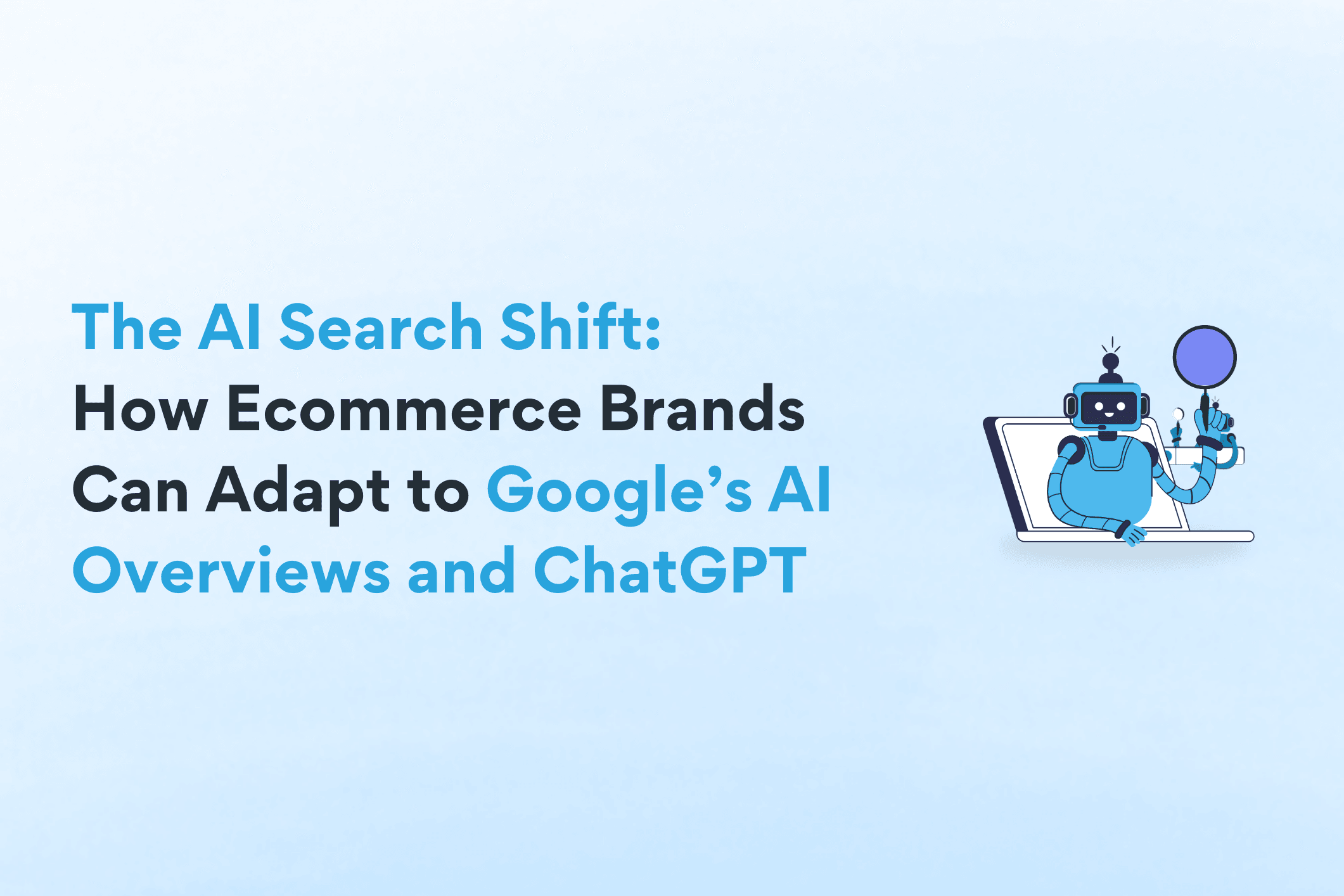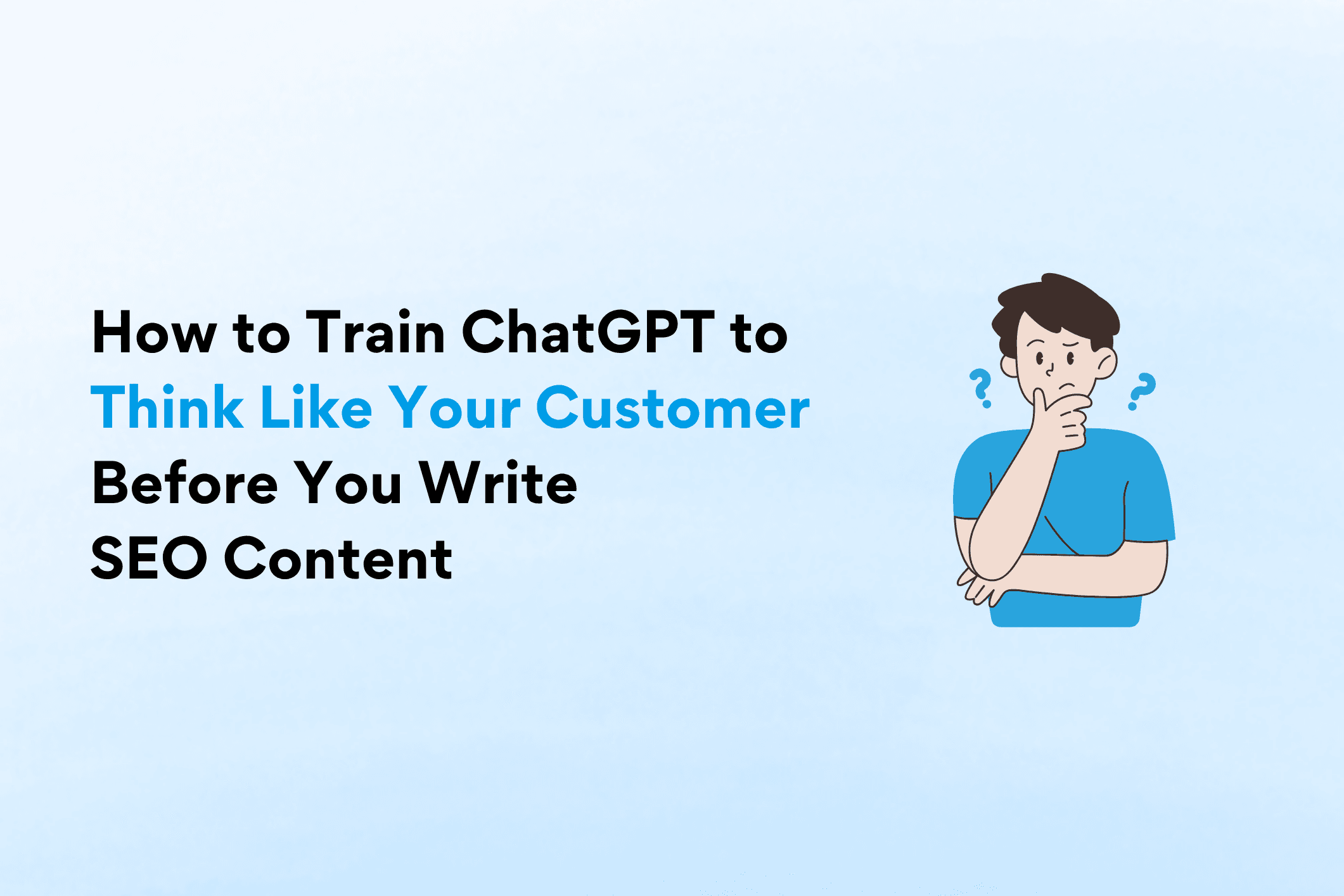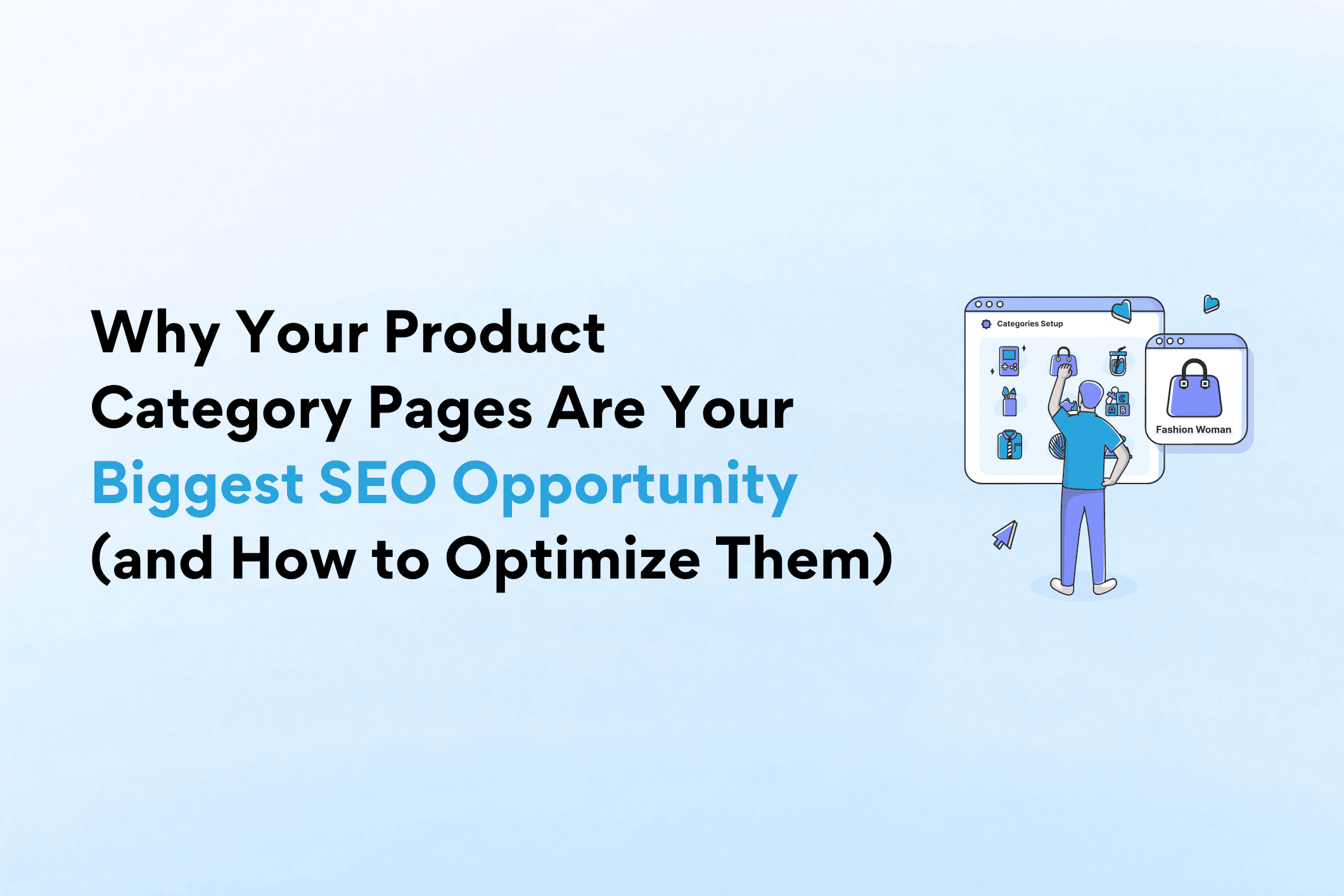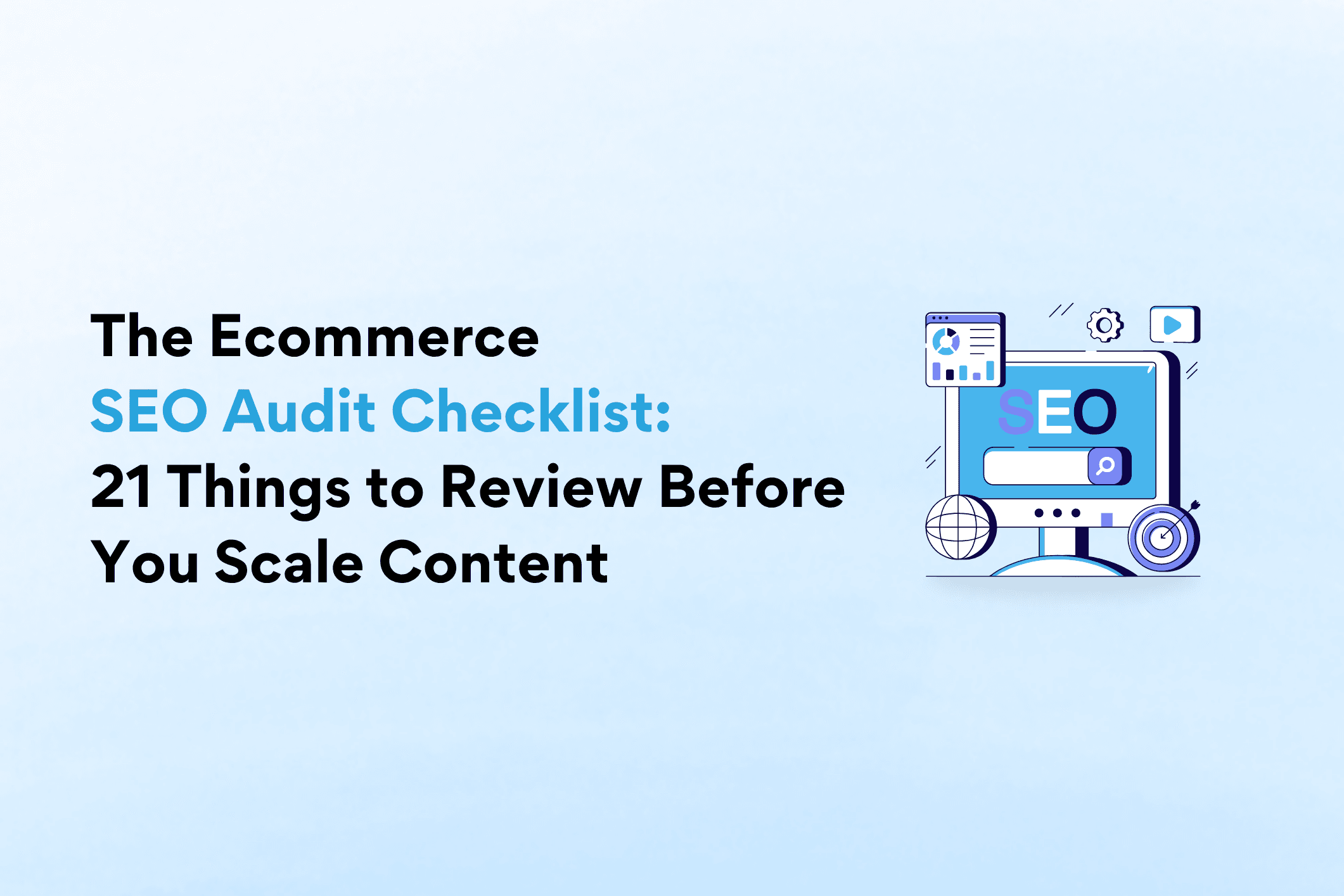Search as we’ve known it is disappearing. For years, ecommerce brands have relied on traditional SEO playbooks, blog posts targeting long-tail keywords, optimized category pages, and a steady stream of backlinks to drive steady top-of-funnel traffic. But the rise of artificial intelligence is turning that model on its head. Google’s introduction of AI Overviews, combined with the mass adoption of large language model (LLM) tools like ChatGPT and Perplexity, has ushered in a new era where searchers get direct answers, often without clicking through to any website at all.
For ecommerce marketers, this shift feels unsettling. The once-reliable pipeline of organic search traffic is now disrupted by AI-generated summaries that reference content without always rewarding it with a visit. And yet, this disruption brings opportunity. While older tactics may lose effectiveness, brands that evolve and build AI-friendly content stand to become the “go-to” sources that these models rely on to answer buyer questions. The winners will be those who recognize how AI search is changing customer behavior and adapt faster than their competitors.
What Are AI Overviews and LLMs?
AI Overviews are Google’s newest feature within search results. Instead of returning a list of blue links, Google now surfaces a summarized answer, crafted by generative AI and trained on massive amounts of content from across the web. This overview appears before the organic results, answering the user’s question in a few sentences and often citing 2-3 websites at the bottom. Unlike traditional search snippets, these responses are synthesized from multiple sources and framed in Google’s own words, meaning even brands that are referenced might not receive the click.
LLMs, or Large Language Models, power tools like ChatGPT, Claude, and Perplexity. These tools are becoming search engines in their own right. Millions of users are now bypassing Google entirely and asking ChatGPT questions like, “What’s the best cooler for a 3-day camping trip?” or “What are the top-rated sustainable makeup brands?” queries that would’ve once led them to a blog post or buying guide. LLMs pull from a wide range of online sources to generate their answers, combining structured data (like schema markup) with unstructured content (like blog copy or product reviews).
Here’s what makes these AI tools so disruptive:
- AI Overviews appear at the top of search results and answer user queries directly.
- LLMs like ChatGPT answer buyer questions based on a mix of structured and unstructured web content.
- These systems often bypass traditional clicks, changing how customers discover and engage with brands.
If your content isn’t optimized for these tools, your brand may be left out of the conversation entirely.
How AI Search Impacts Ecommerce Brands
The implications of AI-powered search go far beyond lower rankings or reduced traffic; they strike at the heart of how ecommerce brands attract, educate, and convert future buyers. Traditionally, the top of the funnel has been fueled by high-ranking blog content, buying guides, and FAQ pages. But with AI Overviews and LLMs providing instant answers, these top-of-funnel touchpoints are at serious risk of being skipped altogether.
What’s more, brand messaging and product differentiation, the very things that help you win over a customer, are often lost in translation. When AI summarizes your content, your voice is replaced with its own. If you’re not cited or mentioned, your influence disappears. This is particularly dangerous for emerging or niche ecommerce brands that rely on educational content to build trust and awareness.
Still, there’s a silver lining: AI models depend on content to generate their responses. They need authoritative, clear, well-structured information, and if your brand becomes a reliable source, you can earn inclusion in answers even without a click. For savvy marketers, this opens the door to influence buyers earlier and more often in their journey.
Key impacts include:
- Fewer top-of-funnel clicks: AI Overviews can eliminate the need for users to click on informational blog posts or buying guides.
- Reduced brand visibility: Your unique selling points may be stripped out or paraphrased without attribution.
- Less control over the narrative: AI models summarize content in their own words, which means your original messaging might get diluted.
- New opportunities for visibility: If your content is LLM-friendly, you can still show up in citations, summaries, and answer boxes even if the user never clicks through.
How to Make Your Brand LLM-Friendly
To thrive in this AI-first search landscape, ecommerce marketers must start optimizing not just for humans and traditional search engines, but for the machines summarizing and surfacing content. Being “LLM-friendly” means writing and structuring your content in ways that LLMs can easily understand, extract, and reuse, while still aligning with your broader SEO strategy.
The most immediate and impactful change is implementing structured data. Schema markup gives Google and AI models context about what’s on the page. Whether it’s a product, a set of FAQs, or a how-to guide, structured data makes it easier for machines to interpret and include your content in responses.
Next, consider how your content reads. LLMs are more likely to pull answers from content that is clearly written and well-organized, especially in a question-and-answer format. You also need to ensure your brand name and product names appear naturally and frequently throughout your site, so that models can associate your content with your offerings.
And finally, link-building still matters. AI models tend to reference trusted sources, and trusted sources often have strong backlink profiles. Authority still plays a role in discoverability.
Here’s how to start optimizing today:
- Implement structured data: Use schema markup, especially Product, FAQ, HowTo, and Review to help search engines understand your content.
- Publish content in question-and-answer format: Format content around actual buyer questions.
- Use brand and product names naturally: LLMs tend to recognize repeated, natural mentions of names across authoritative pages.
- Create content worth citing: Google’s AI Overviews and LLMs often cite high-quality, trusted sources. Become one of them by publishing original, accurate content that others want to link to.
Build Content That AI Models Want to Reference
Not all content is created equal in the eyes of LLMs. While keyword optimization and internal linking are still useful, AI models are more focused on comprehension and clarity. That means surface-level content, thin affiliate pages, and clickbait won’t cut it anymore.
Your goal should be to create genuinely helpful, comprehensive content that educates and empowers the reader. AI models prefer content that answers questions fully, explains concepts in plain language, and is easy to break apart into digestible pieces. Think of it this way: you’re not just writing for your buyer, you’re also training the AI to cite you as a source.
This is especially important for mid- to high-consideration products. When someone asks ChatGPT “What’s the best travel backpack for digital nomads?” you want your brand to be included in that answer. To make that happen, your blog posts, buying guides, and comparison pages need to go deep, be well-organized, and avoid sales fluff.
Follow these best practices to become citation-worthy:
- Focus on evergreen topics: Write about issues your customers will care about for years, not just what’s trending this month.
- Cover topics in-depth: Comprehensive content tends to perform better with both humans and machines. Address multiple angles, include examples, and break down complex topics.
- Use plain, concise language: Avoid jargon. Write like you’re explaining something to a smart friend, not a colleague.
- Structure matters: Use clear headings, bullet points, and short paragraphs. AI models love clean structure.
- Keep it fresh: Regularly update old posts with the latest data, answers, and product info. AI models and Google reward recency.
Track and Optimize for LLM Inclusion
Once you’ve started producing LLM-friendly content, the next step is to monitor how your brand is being referenced or not in AI-generated responses. This requires a shift in measurement. Traditional SEO tools focus on rankings and traffic, but now you’ll also want to look at presence within generative search engines.
You can do this manually by running searches on platforms like ChatGPT or Perplexity using queries your buyers might ask. Take note of whether your site is cited in the responses, what pages are being pulled in, and how the AI is framing your brand. Are you being mentioned by name? Are your product details being included?
Additionally, tools like Peec.ai have emerged to help brands track AI citations and generative search visibility across platforms. While still early in development, these tools can provide valuable insight into how often and in what context your content is being referenced.
Use the following tactics to stay ahead:
- Search your brand in ChatGPT and Perplexity: Ask questions your customers might ask and see if your site or content shows up in the citations.
- Use AI visibility tools like Peec.ai: Track if and where your domain is being cited in AI Overviews or generative responses.
- Analyze citation types: Look for patterns in the pages that get referenced, are they blog posts, product pages, comparison guides, FAQs?
- Double down on what’s working: If one page keeps getting cited, build supporting content around it or update it to be even more useful.
Final Thoughts: AI Search Is a Threat and a Shortcut
The rise of AI in search is shaking up everything we thought we knew about SEO. But it doesn’t mean the end of organic visibility, it just means the end of lazy SEO. Brands that lean into this shift, by understanding LLM behavior, producing clear and valuable content, and tracking their generative presence, can still win. In fact, they can win bigger than before.
We’re entering a new era where helpfulness, clarity, and authority matter more than keywords and backlinks alone. If your brand becomes a trusted source in the eyes of AI, you’ll be surfaced at every stage of the buyer journey, whether the customer is on Google, ChatGPT, or some yet-to-be-released discovery engine.
To summarize, ecommerce brands that win in the AI era will:
- Prioritize content quality and depth
- Leverage structured data for machine readability
- Think like their buyers and answer real questions
- Measure and optimize for AI visibility, not just traditional rankings
Search is evolving. Visibility is evolving. The brands that adapt fastest will become the ones AI turns to first.
Greg is a digital marketing strategist, ecommerce owner, e-commerce marketing agency owner, and recognized leader in the D2C industry.
With 18 years of experience working with small, medium, and large organizations, Greg knows how to build and execute marketing strategies that drive growth.



